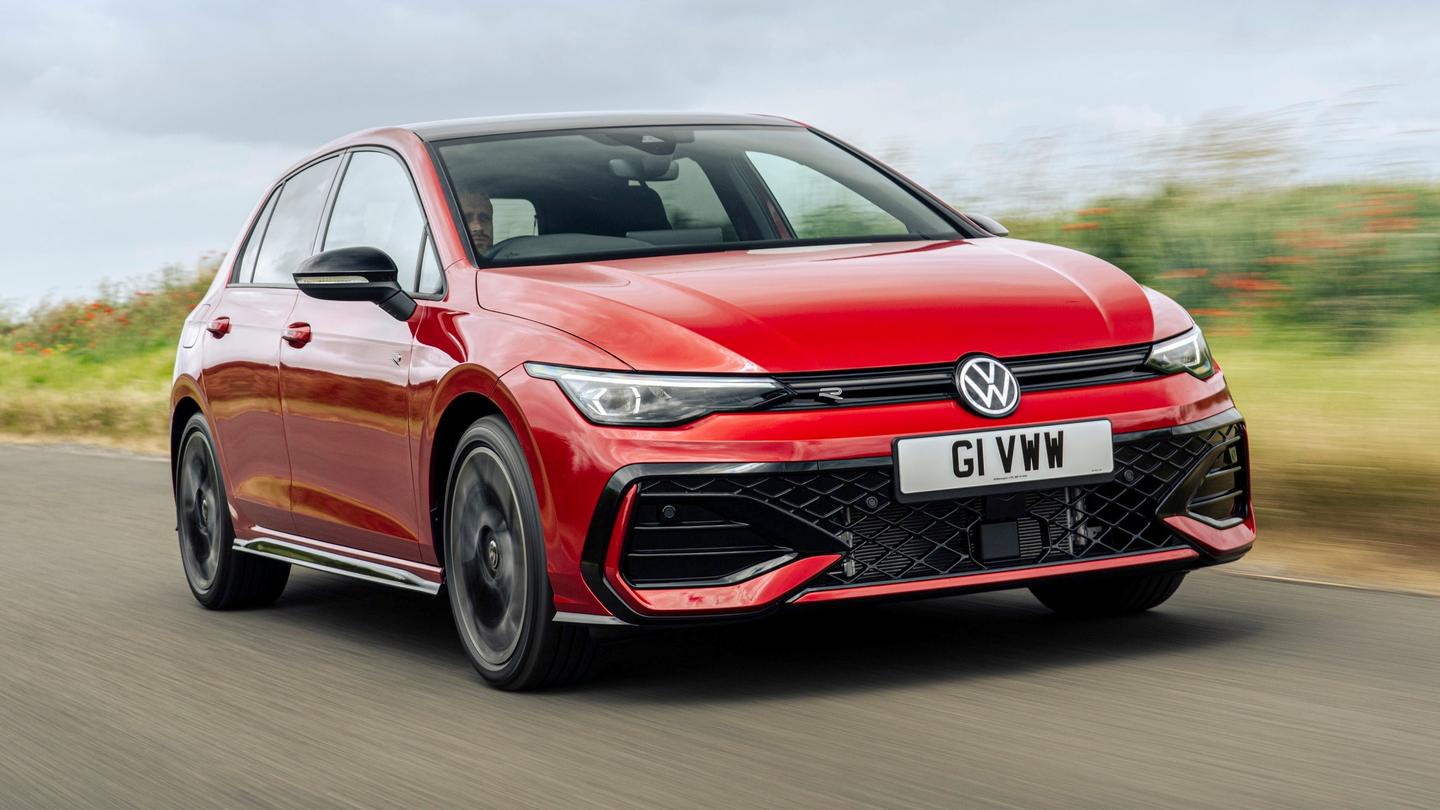
SEAT Leon engines, driving and performance
Gallery
How does the SEAT Leon drive?
In a word, positively. Oh, you want a better description? Sure. The Leon drives really nicely – it’s clearly not a Porsche but it offers better handling than the majority of family cars. The steering is light but accurate and reasonably communicative, making it easy to stick to your chosen line on faster roads. Its twirliness also makes it a doddle to pilot through city streets and multi-storey car parks.
Body roll is kept well under control, and the Leon never feels like it’ll do anything unpredictable. Whether you’re on a mountain pass or a motorway, the Leon is confidence-inspiring and feels as solid as if it’s been hewn from granite.
Unlike granite, the Leon feels light on its feet and agile. It isn’t flustered by quick direction changes or sweeping fast bends.
There’s not much feel in the clutch, which can occasionally make it a little tricky to get away smoothly. But the manual gearbox it’s attached to is fantastic. The gearshift is short and direct, with unerring precision. It’s fun to row through the gears, and you won’t mind dropping a cog or two on steep hills.
Is the SEAT Leon comfortable?
The SEAT Leon might have a sporty focus but it’s still a family hatchback that’ll be tasked with transporting kids, grandparents and four-legged family members, so an overly firm ride wouldn’t be acceptable. The Leon balances sportiness with comfort well – you’ll be aware of poorly surfaced roads through the suspension and seats, but sharp and jarring bumps are generally ironed out.
FR and FR Sport cars get sports suspension, which is set up to be a little firmer than the standard suspension. We’d avoid the biggest 18-inch wheels if comfort is a priority. If your car absolutely must be comfortable above all else, consider the Golf or Toyota Corolla instead.
What’s the best engine to get?
For the majority of buyers, either the 1.0-litre or 1.5-litre petrol engine will be best. Even the 1.0-litre engine has enough get-up-and-go to make getting up to motorway speeds easy, and this engine is typically the cheapest to buy and insure.
The 1.5-litre engine offers noticeably improved performance, with 150hp versions feeling pretty nippy. And, thanks to its clever cylinder deactivation technology – half the engine shuts down when you’re not using much throttle – the 1.5 gets within a couple of MPG of the smaller engine. It’s a top all-rounder.
A rare choice is the 190hp 2.0-litre petrol, which gives brisk performance but fuel economy suffers as a result. You should still manage around 40mpg, though, which isn’t too bad.
Diesel buyers are served by a 2.0-litre lump offering either 115 or 150hp. We think the petrol engines suit the Leon’s sporty nature better, but long-distance drivers will appreciate the diesel’s return of around 60mpg – although even the petrols can crack more than 50mpg on a long run. Diesel Leons will need periodic topups of AdBlue, and will need semi-regular long journeys to avoid DPF issues in the future.
In the latest car, there’s also a plug-in hybrid engine called the eHybrid. The headline stats are a 36-mile electric range from a fully charged battery and the promise of 235mpg. Like any PHEV, getting close to that in the real world is quite difficult, however. The 204hp hybrid is one of the quickest engines available, with 0-62mph taking 7.5 seconds.
Hot hatch buyers are well served by Cupra-badged versions. These are VW Golf GTI and Golf R models in disguise, with up to 310hp and red-eyed performance – whether you’re on a dead-straight road or a twisty country lane. Older cars are called the SEAT Leon Cupra, while newer cars drop the SEAT badges and are called the Cupra Leon.
SEAT Leon performance
Every Leon offers quick responses when you prod the throttle, and no version feels really slow. The 1.0-litre petrol dips under the 11-second mark to get from 0-62mph, while the 115hp diesel takes a fraction over 10 seconds. Choosing the 1.5-litre petrol drops the acceleration time to between 8.5 and 9.5 seconds, while the plug-in hybrid and the 2.0-litre petrol both take around 7.5 seconds. The hottest Cupra models take around six seconds to crack this benchmark, making them quicker than some sports cars.























































